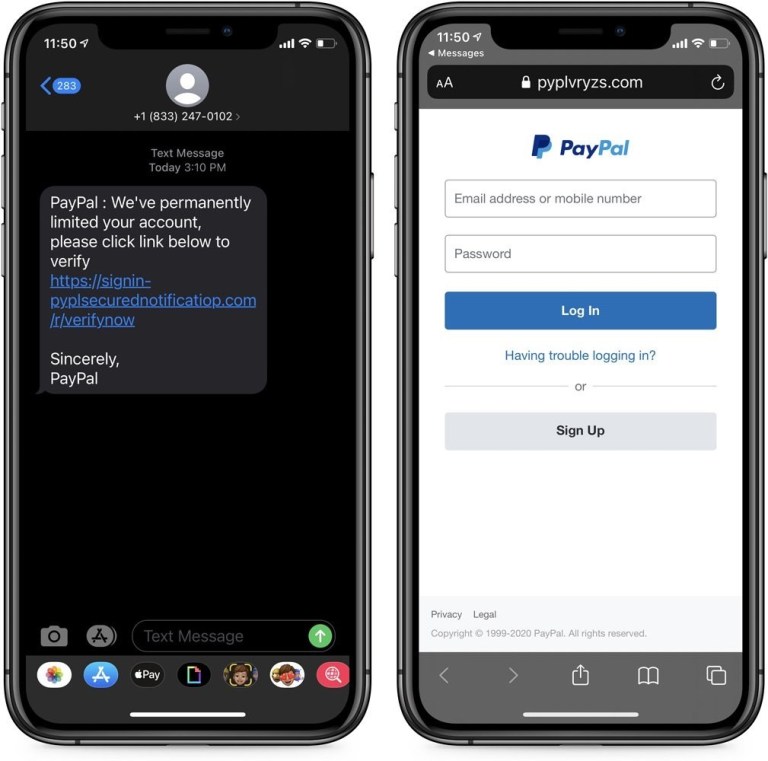Trend Security Expert
•
866 Messages
•
34.9K Points
Spot the Scam: 4 Phishing Scams to be Aware of

As much as we hope scams to disappear completely from our lives, scammers will always find a way to come up with more scams to benefit from people. Among them, phishing scams are spreading ferociously – scammers trying their hardest to ‘phish’ through texts, emails, and social platforms. In this post, we’ve selected 4 widespread phishing scams to discuss in detail. Do you know how to spot these on your own?
PayPal verification phishing texts
How does it work?
PayPal has been one of the most impersonated company names in phishing scams. We found that scammers are faking texts pretending to be PayPal officials, falsely claiming that the recipient’s account is “permanently limited” and that he/she must click on the link in the text to verify account authenticity. DO NOT click! The link is a phishing link. Once the recipient clicks on the link, he/she will be taken to a fake PayPal login page and asked to enter login credentials. Thus, scammers can gain access to the recipient’s PayPal account and claim ownership of it.
Use Trend Micro Check for immediate scam detection.
USPS phishing texts
How does it work?
Scammers send text messages pretending to be someone from the United States Postal Service (USPS). In these messages, scammers would tell recipients their parcel cannot be delivered before the holiday with a link requesting them to ‘claim compensation’ or ‘reschedule delivery.’
The link, as you might be aware by now, is a phishing link. Once you click on it, you will be directed to a website, where you are asked to enter your personal information such as home address or financial credentials. If you complete the steps, unfortunately, your personal information will end up in scammers’ hands – allowing them to use it for other scams. For example, identity theft.
Some examples of USPS phishing texts. Source: Reddit
Unemployment benefit phishing email
How does it work?
Scammers send fake emails to falsely notify recipients that they can get unemployment benefit by updating their personal information. In the same email, the recipient is asked to click on a link provided in the email.
Watch out! The link is a phishing link, which will take you to a website asking for personal information such as home address, Social Security, credit card, or detail of your bank account.
The Florida Department of Economic Opportunity (DEO) confirmed and warned that the email is a scam on their Twitter.
“Is it you?” Messenger phishing scam
How does it work?
Scammers send links with the caption “Is it you in the video?” to random people on Messenger, trying to lure the recipient into clicking. Be aware, there is NO video to view – because the link is a phishing link. Once you click the play button, you will be taken to a fake Facebook login page, asking you to sign in and enter your account credentials.
When scammers gain access to your Facebook account, they will use it to send similar messages to spam all your contacts to trick them into doing the same thing. In worse situations, malware will start to download as soon as you click the link.
 What an “Is it you” scammy message look like.
What an “Is it you” scammy message look like.
Read the full article here: https://tmcheck.us/bFRr1kXe








dtsewall
Neophyte
•
11 Messages
•
300 Points
4 years ago
Hi - I suspect that I might have a fake Trend Micro anti-virus package installed on my computer. I am a regular subscriber. Is there any way to check?
3
0